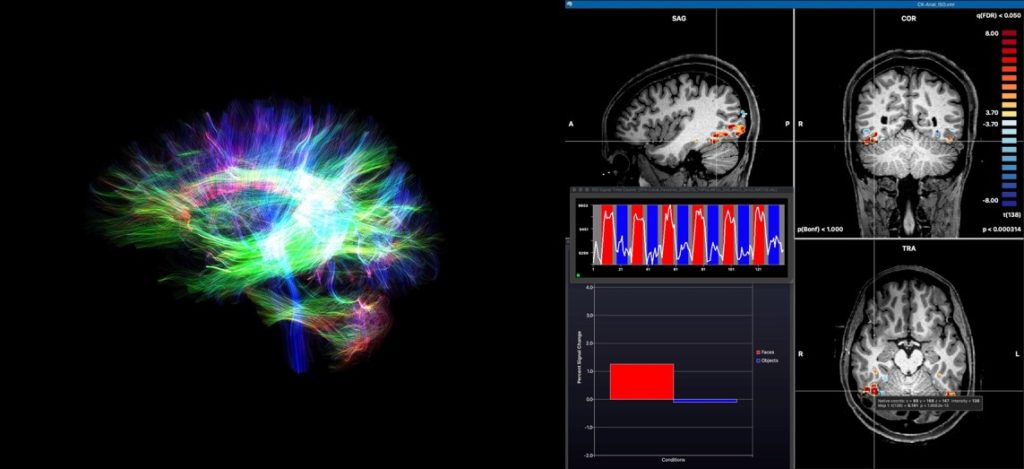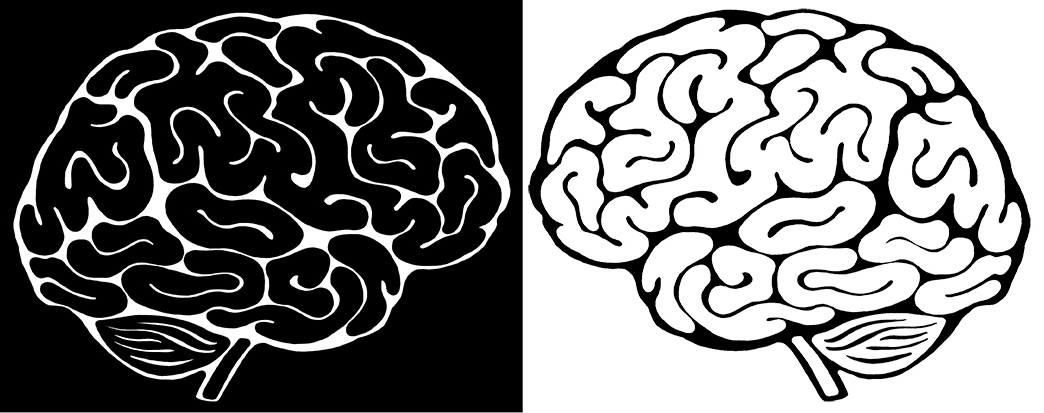Thinking of Graduate School in Human Neuroscience?
17th Oct 2023
Applying to graduate school is really stressful. There’s an overwhelming amount of information and an overwhelming number of choices.
UW is holding a mini Zoom conference for senior undergraduates considering a
research career. Details can be found here.
There is free registration here
The morning session is focused on general skills that will help you as you
transition from your undergraduate career. The goal of the morning session is
to:
- Show you how how to use NIH and NSF databases to identify labs of interest and discuss how to find funding mechanisms available for US citizens, non-citizens and focused on increasing diversity in science.
- Provide help deciding which labs to apply to for either a post-graduate research year or graduate school.
- Help you understand how graduate school funding works.
The afternoon session is focused on UW. The goal is to:
- Give prospective graduate students face time with human neuroscience professors at UW.
- Get an idea of what studying human neuroscience is like at the University of Washington.
Free Registration is required:
To attend either session, please preregister here by the 10th October and you will be sent a Zoom invite.

9-10:30am PST (12-1:30 EST) Session 1: How to find a lab / how graduate school funding works / diversity supplements
9:00-9:45 pm How to find a lab / how graduate school funding works
This is a general overview about how to find a lab, how graduate school funding works etc. etc.
This session is intended for students looking to do research in a lab during their undergraduate period, in a post-graduation year, as well as those attending to apply for graduate school this year.
We will discuss how the graduate selection process typically works, and what we are looking for in your application
You will be shown how to use NIH and NSF databases to identify labs of interest and discuss how to find funding mechanisms available for US citizens and non-citizens.
The information session will end with a 15 min Q&A
9:45-10:30 pm NIH and NSF Research Diversity Supplements
NIH and NSF have programs designed to broaden participation in science. The inclusion criteria are quite broad. The NIH diversity criteria can be found here. (The NSF criteria are a little vaguer and can include being a woman in a field where women are heavily under-represented.) Generally the programs are designed to support:
-
- Individuals from disadvantaged backgrounds
-
- Individuals from racial and ethnic groups that have been shown by the National Science Foundation to be underrepresented in health-related sciences
-
- Individuals with disabilities
We’ll discuss the various support mechanisms that are available, and how to leverage them effectively.
The information session will end with a 15 min Q&A
3:00-4:30 pm PST (6-7.30pm EST) Session 2: Welcome to Human Neuroscience at UW
UW has outstanding faculty in human neuroscience, comprised of over 35 faculty members, distributed across 14 departments and institutes. Almost every domain of human neuroscience is represented. These faculty are situated within the context of a world-class medical school, neuroscience and psychology graduate programs, and one of the leading data science institutes in the country. Every year we train over 100 undergraduate, graduate, and postdoctoral students.
We’ll discuss graduate programs to which students interested in human neuroscience often apply (including the Neuroscience graduate program), what to expect when you apply, diversity resources and lots of other good stuff.
This day is intended for students planning to apply to graduate school this year, though all students/post-graduation researchers are welcome to attend.
3:00-3:15 Introduction
3.15-4.30 Break Outs
Each Break Out Session starts with a 5 min overview, followed by a 10 min Q&A. There’s a 5 min break between each break out. The idea is that you can talk to a professor at UW in small groups.
When we send you the Zoom link you’ll be given a recommended schedule. You are welcome to diverge from the schedule, provided there are spaces in the Zoom room you want to join.
3:15-3.30 Break Out 1
– Clinical Psychology at UW: Angela Fang and Scott Murray
-Data Science at UW: Ariel Rokem & Noah Benson
– Vision, Attention & Sight restoration: Geoffrey Boynton
– Executive function and memory: Andrea Stocco
– Audition and Language: Bonnie Lau
– Vision/Blindness’/Plasticity: Ione Fine
3:35-3.50 Break Out 2
-Data Science at UW: Ariel Rokem & Noah Benson
– Vision/Plasticity: Ione Fine
– Audition and Language: Bonnie Lau
– Vision, Attention & Sight restoration: Geoffrey Boynton
– Neuropsychology at UW: Scott Murray
3:55-4.10 Break Out 3
– Machine Learning: Ariel Rokem and Noah Benson
– Neuroimaging at UW: Geoffrey Boynton & John Pyles
– Audition and Language: Bonnie Lau
– Neuropsychology at UW: Scott Murray
4:15-4.30 Break Out 4
– Neuroimaging at UW: Geoffrey Boynton & John Pyles
Break out hosts
Noah Benson
Domain: Human vision; neuroinformatics; structure and function
Methods: Data science; fMRI; machine learning; optimization; computational modeling
Geoffrey Boynton
Domain: Human vision, attention, sight restoration
Methods: fMRI, computational modeling
Angela Fang
Domain: Biomarkers of treatment response in cognitive behavioral therapy for anxiety and obsessive compulsive disorders; Oxytocin and social cognition
Methods: fMRI, pharmacologic administration, psychophysiology, clinical assessments
Ione Fine
Domain: Neural plasticity in individuals who are born blind. Computational models predicting the perceptual experience of sight recovery technologies
Methods: Psychophysics, fMRI and computational modeling
Bonnie Lau
Domain: Auditory brain and perceptual development, language acquisition, neurodiversity, hearing loss
Methods: EEG, MEG, psychophysics
Scott Murray
Domain: Neural mechanisms of visual perception and attention; neurodiversity; autism
Methods: fMRI, EEG, MRS, computational modeling
John Pyles (Associate Director UW Center for Human Neuroscience)
Domain: Cognitive Neuroscience
Methods: fMRI
Andrea Stocco
Domain: Interactions between procedural and declarative memory
Methods: Computational models,, neuroimaging, neurostimulation
Ariel Rokem
Domain: Neuroinformatics; White matter connectivity, with a focus on visual system connectivity; Individual differences
Methods: Data science; software engineering; computational modeling; machine learning
